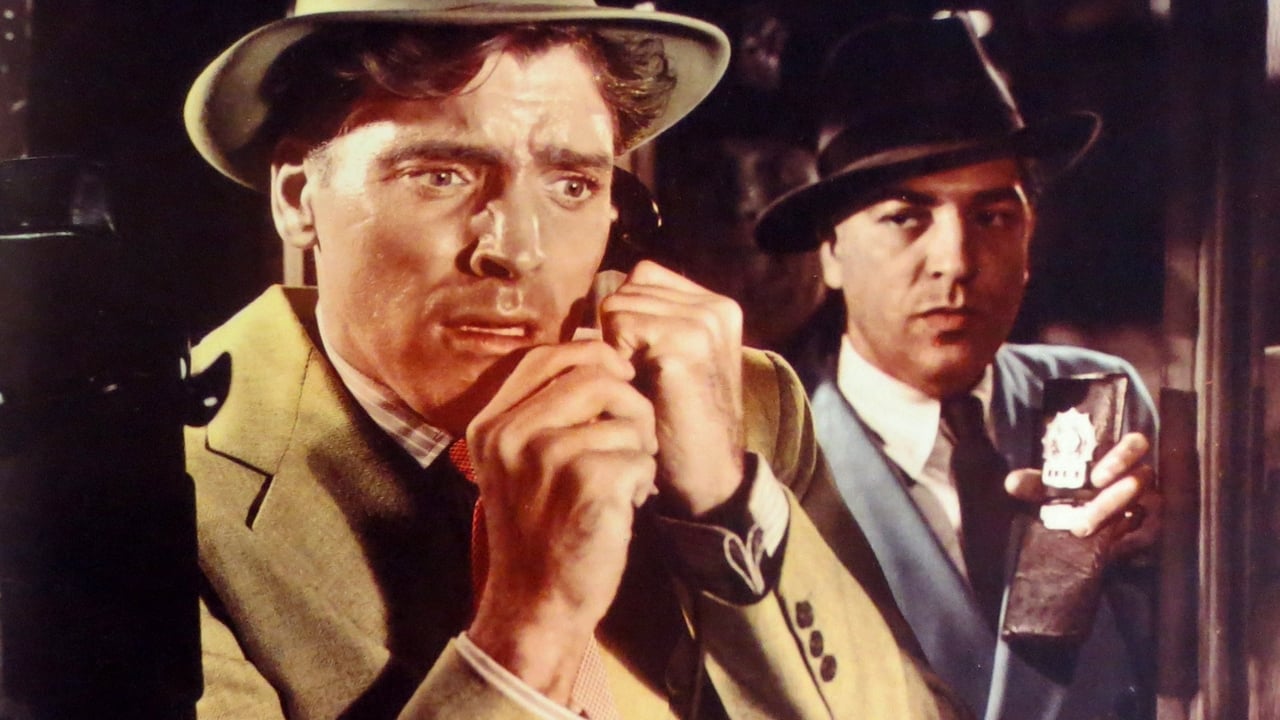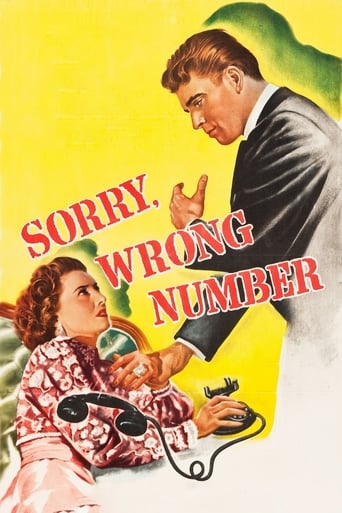



People are voting emotionally.
After playing with our expectations, this turns out to be a very different sort of film.
View MoreThis is a gorgeous movie made by a gorgeous spirit.
View MoreStrong acting helps the film overcome an uncertain premise and create characters that hold our attention absolutely.
View MoreWhen I watched this movie as a child, it absolutely terrified me! When asked what the scariest film I'd ever seen was, 'Sorry, Wrong Number' was always at the top of my list. How I wish I didn't watch it again as an adult, because unlike other classics that have held up over the years ('The Godfather', 'Psycho', 'The Graduate'), this one sadly didn't.It stars Barbara Stanwyck as a woman who suffers from Hypochondria due to a mental impairment, and her husband Burt Lancaster ~ a man who works for Stanwyck's father. Having been mistreated and abused for years in his position, Lancaster decides his only way out of the marriage is by having Stanwyck killed. Stanwyck accidentally overhears a murder plot in a mis-transfered phone call, and starts realizing she is the intended target. When Lancaster starts having regrets and attempts to warn his wife of what will be occurring, it is obviously too late ~ when the killer answers the phone the final time and says, 'sorry, wrong number'. I'm sure it was absolutely terrifying in its day...and definitely was to a ten year old child! But the years have unfortunately diminished that fright factor.
View MoreA wonderfully suspenseful movie. A hypochondriac woman lies in bed. Upon making a phone call, she inadvertently overhears a couple men planning a murder. She knows the time it will be committed. She does what she can but with so little information, the police can do nothing. She keeps making calls. Soon we are in flashback mode as she searches her brain for any inkling of what is going on with her husband who should have been back by this time. It's a matter of trying to figure out who the victim is going to be. We have the advantage of knowing the possibilities. Things get more intense as the time approaches. A real spellbinder for the ages.
View MoreWhat we have with SORRY, WRONG NUMBER is a half-hour premise (originally done on radio with Agnes Moorehead) that has been painfully stretched into 89 minutes. The entire thing feels padded, like the flashbacks are used as filler just to draw it all out and reach the required length of a feature film. Another problem is the dialogue. It is obvious that they didn't rewrite it for the screen and relied heavily on the original text of the radio version.Close your eyes and listen to it and it is like listening to a radio program. Some people like that, but I don't. I think dialogue should be sparse (unless it's a screwball comedy where we're supposed to have a series of rapid fire exchanges) and that especially in noir or a suspense drama, filmmakers should show whenever possible and not tell. Instead, this film is too talky and way too shrill. One contemplates what it would be like if it had been produced in the hands of someone like Alfred Hitchcock-- how it would be much more visually striking and what other dramatic possibilities (and ironic humor) might have been achieved with the story.
View MoreHeck of a thriller, though the narrative is difficult to piece together at times. Stanwyck gets to run through a gamut of hysterical emotions as the intended victim. Her Leona is not particularly likable as the rich man's daughter who gets her way by bullying people around her. So there's some rough justice in her predicament—alone, disabled and dependent on the phone while a killer seemingly stalks her. Even the independent working-man, a studly Henry (Lancaster), is bullied into taking up with her. Of course, it doesn't hurt that she's got scads of money to assist her schemes. Incidentally, catch how Henry's several capitulations to others (Leona, Morano) are marked by allowing them to light his cigarette. Nice touch.The idea of only gradually revealing why Leona is being set up for murder is a good one. It adds to the suspense—not just a 'when' but also a 'why'. The trouble is the disclosure is only revealed in pieces over the phone using flashbacks, and these are hard to piece together over a stretch of time. But enough comes through that we get the idea. There's some great noir photography from Sol Polito that really adds to the tense atmosphere. Anyhow, it's a great premise that also played well over the radio that I recall as a kid. It's also a subtle irony that one could end up being so alone in the middle of a great city. Poor Leona, maybe if she had been a little nicer and less bossy over the phone, she might have made the human connection she needed.
View More